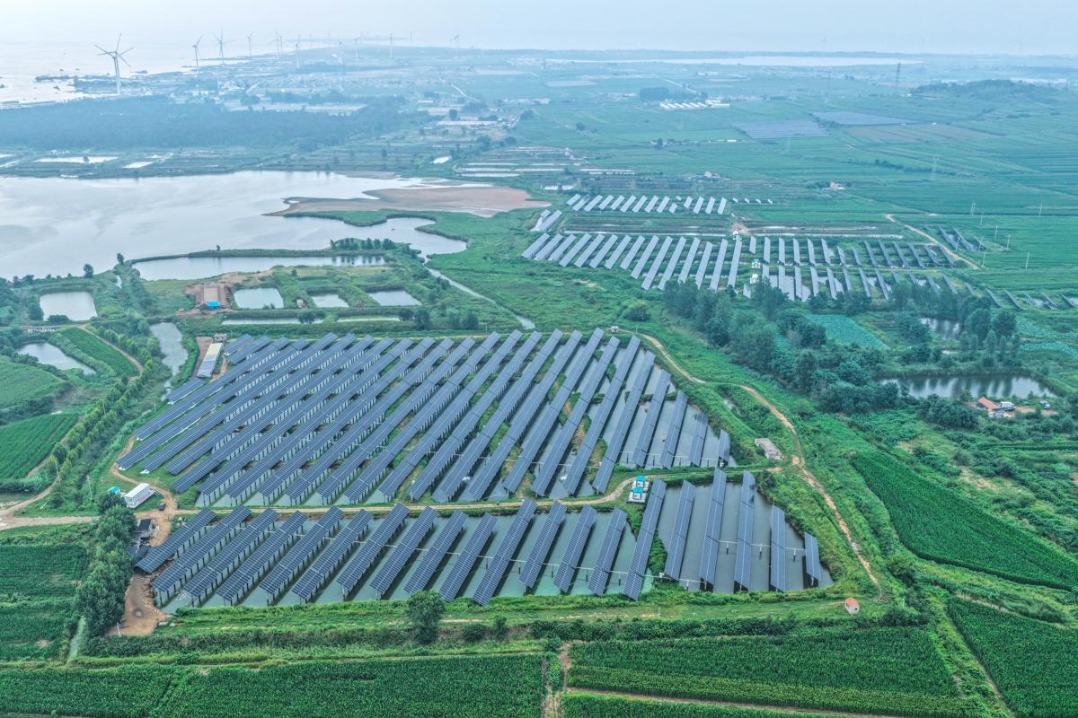Education leaders shape tech impact
Principals and teachers guide digital transformation across East Asia

Education leaders, not technology alone, will determine the success of digital transformation in East Asia's classrooms, according to a new UNESCO report released this week during the Global Smart Education Conference 2025.
"East Asia: Lead for Technology", a regional edition of the 2024/25 Global Education Monitoring Report, said school principals, education officials and teacher leaders — or their representatives — are central to ensuring that technology adoption in classrooms improves future learning and focuses on students.
The report highlights how countries across East Asia have become pioneers in incorporating digital education: China has advanced a unified national smart education platform through its Digital China Initiative; Japan has rolled out a one-device-per-student policy; and South Korea is developing AI-powered textbooks for nationwide use by 2028.
However, the report cautions that devices and networks alone will not bring meaningful change, and collaboration among education leaders is essential in digital reform efforts.
Manos Antoninis, director of the Global Education Monitoring Report, said digital education technology is evolving at a rapid pace, and it is necessary to inject human-centered care into reforms to ensure that the interests of students remain at the core.
"School and education system leaders play a crucial role in this process, but their importance may not be fully recognized," he said.
In China, digital learning has been regarded as a cornerstone of the country's education modernization drive, said Huang Ronghuai, dean of the Smart Learning Institute at Beijing Normal University.
The country has consolidated 32 provincial platforms into a single national smart education public service system, which categorizes resources by school level and curriculum to reduce duplication and ensure equal access.
As part of its Digital China Initiative, the government has set a target to introduce artificial intelligence education in all primary and secondary schools by 2030.
Local education authorities have been facilitating collaboration between schools. Qinghai province, for example, has built partnerships with education institutions in Jiangsu and Zhejiang provinces.
Huang, a co-author of the report, said the Global Smart Education Conference in Beijing, which ran from Monday to Wednesday, provided a platform to share experiences and address common challenges in advancing inclusive and equitable education in the digital era.
The report said principals, teachers and local officials carry the responsibility of ensuring that digital transformation is more than a technical exercise. Principals are expected not only to manage digital resources and cybersecurity, but also to guide teaching innovation and protect student well-being.
Teacher leaders embed reforms at the classroom level by experimenting with new methods and sharing best practices, while local education officials oversee implementation and provide crucial feedback to policymakers, it said.
Stefania Giannini, UNESCO's assistant director-general for education, said East Asia offers a compelling example of how leadership roles are evolving in response to new technologies.
"School principals can no longer be seen as mere administrators," she said, adding that it is critical to empower education leaders with training.
According to the report, countries should establish systematic training programs to raise the digital literacy and leadership capacity of education administrators. It called for investing in technical support workers to ease the burden on schools.
In addition, the development of collaborative systems and cross-regional partnerships among different levels of education authorities is encouraged.
The future of smart education depends not only on the technology itself, but also on whether education systems and leaders can drive reforms toward quality and sustainability, the report said.
zhaoyimeng@chinadaily.com.cn
- Education leaders shape tech impact
- Family doctors boost medical care access
- China announces qualified candidate list for 2025 academician selection
- Chinese premier calls for sci-tech, policy support to boost bio-medicine industry
- Chinese vice-premier urges enhanced efforts in autumn grain production, disaster prevention
- Legislation addresses inequity in toilet designs





































